With a couple of exceptions, the books I read this month were . . . fine. Not horrible, but not favorites either. That’s not to say YOU won’t find your next favorite read through these reviews. so read on to find out!
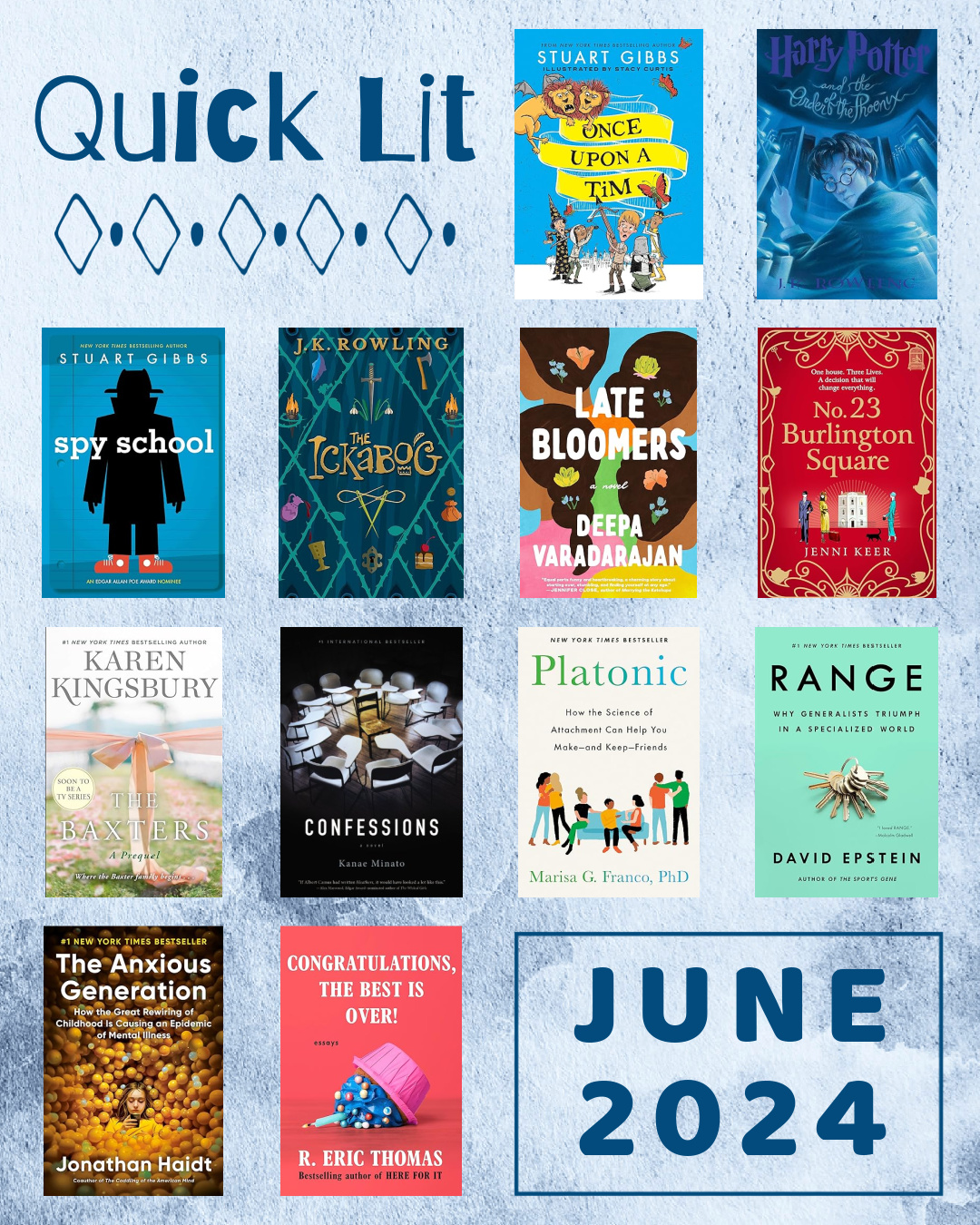
MIDDLE GRADE
Once Upon a Tim, by Stuart Gibbs: After reading Spy School on Charleston’s recommendation (see below) and realizing there were some content issues I wish I’d known about BEFORE he’d picked it up, I decided to preview another of Gibbs’ books ahead of Charleston.
Set in a magical medieval world, Once Upon a Tim tells the story of a plucky young peasant named Tim who has always wanted to be anything BUT a peasant. Unfortunately, his options are limited and Tim’s family (who have been content with their peasanthood for countless generations) doesn’t understand his big dreams. When news spreads that Princess Grace of the neighboring kingdom has been abducted by the evil Stinx, and that Prince Ruprecht is in need of knights to join him on his quest to save the princess, Tim recognizes his opportunity for a new life. He and his best friend Belinda disguise themselves as knights and, along with Ferkle the village idiot and Tim’s Fr-dog (an enormous frog who was once a dog) Rove, join the cowardly prince and his Court Magician Nerlim on a romp through the kingdom, where menacing trolls, bloodthirsty monster butterflies, and all manner of dastardly menaces are determined to thwart their quest.
This story is absolutely ridiculous but also a lot of fun. Tim is a hilarious narrator who brings plenty of snark to the story, as well as a broad assortment of new vocabulary words (cleverly marked with “IQ Booster” arrows because, as Tim explains, he’ll occasionally drop “a big word in here and then share the definition. That way, if your parents ever start giving you grief for reading a book with lots of pictures in it, you can tell them it’s actually educational.”) The described escapades are totally over-the-top but offer fun nods to fairy tales and insights into the life of medieval peasants and knights.
While kids will love the silly humor and cute illustrations, many of the (very clever) jokes may go over their heads, and some of the language and jokes are pretty crude for the intended young audience. Parents will also want to be aware of some subtle nods to homosexuality, as well as very progressive ideas about gender roles. With caveats, I did pass this on to Charleston; he loved it, and it sparked some interesting discussions about courage, false impressions, and overcoming obstacles.
My Rating: 4 Stars // Charleston’s Rating: 4.5 Stars // Book Format: Print
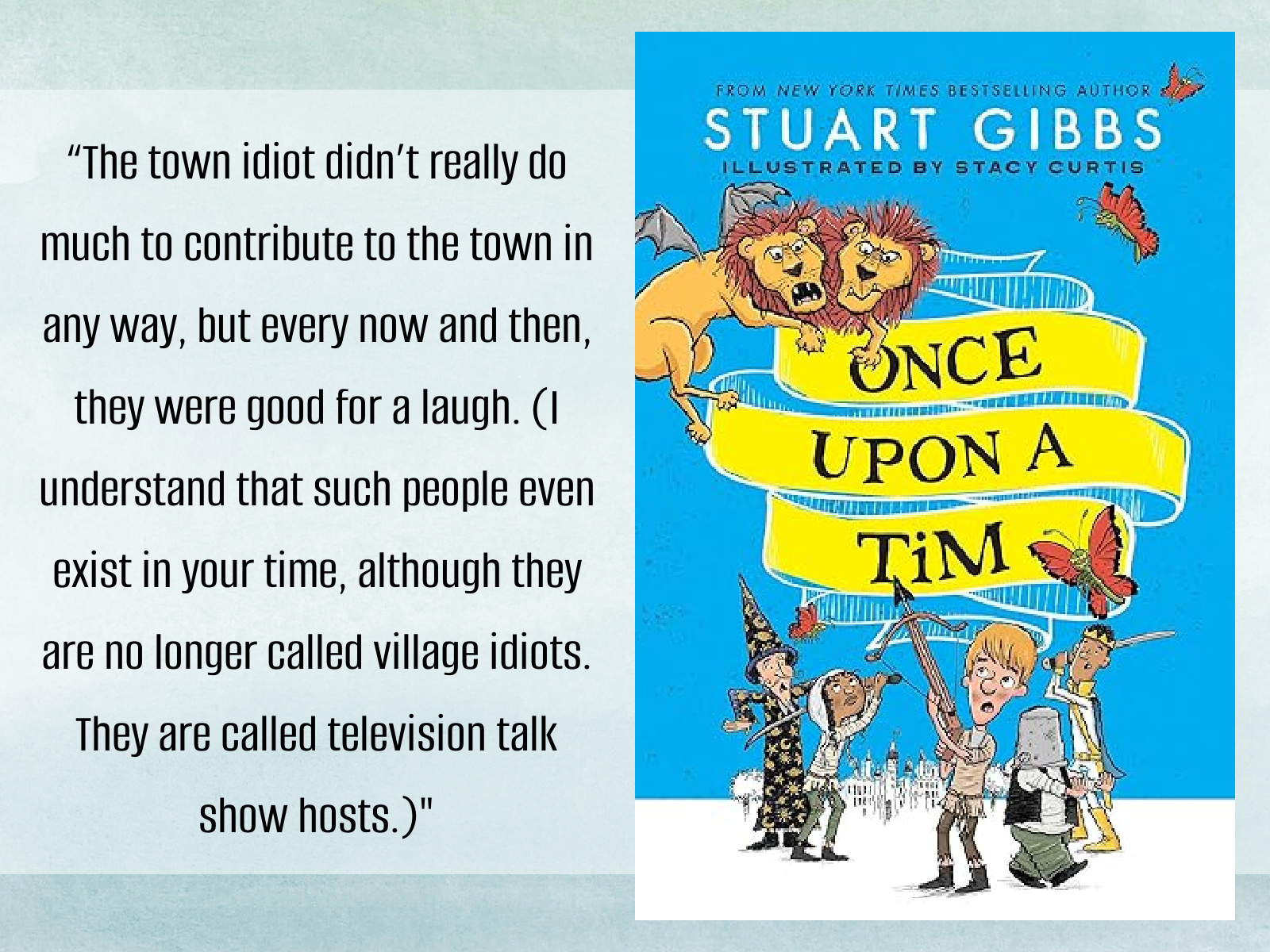
Spy School, by Stuart Gibbs: Ben Ripley is a fairly typical 12-year-old. Sure, he’s great at math and he happens to spend an inordinate amount of time on the CIA’s website, but he never thought that made him anything special. That changes when a debonair James Bond look-alike appears at his home, informing Ben that he’s been recruited as the newest student at the CIA’s Academy of Espionage, where he will spend the next several years training to be a spy. Ben leaps at the opportunity, but within hours of his arrival his life is in jeopardy and he begins to question whether he has what it takes to achieve the job of his dreams.
Charleston discovered this series last month and has plowed through all eleven books in record time. Of course I wanted to know more about this series that had captured his attention. And honestly, if I’d previewed this first book before he’d read (rather than simply reading a few reviews to screen for content issues) I probably wouldn’t have allowed him to read them: there is some mild profanity that I’m not comfortable with, and I don’t love Ben’s somewhat crass way of talking about his potential love interests. (Charleston and I have since had some conversations about these issues and how to approach them when they appear in our entertainment choices.)
Beyond these content issues, I can understand Charleston’s love for these books. This first installment is fast paced, humorous, and filled with all sorts of spy lingo and tactics—right up my mystery- and spy-loving kid’s alley. This is far from great literature, but the concepts and vocabulary are fairly advanced, taking this beyond mindless read to something a little more challenging and engaging.
My Rating: 4 Stars // Charleston’s Rating: 4.5 Stars (In his words: “I took away half a point for the inappropriateness.”) // Book Format: Kindle
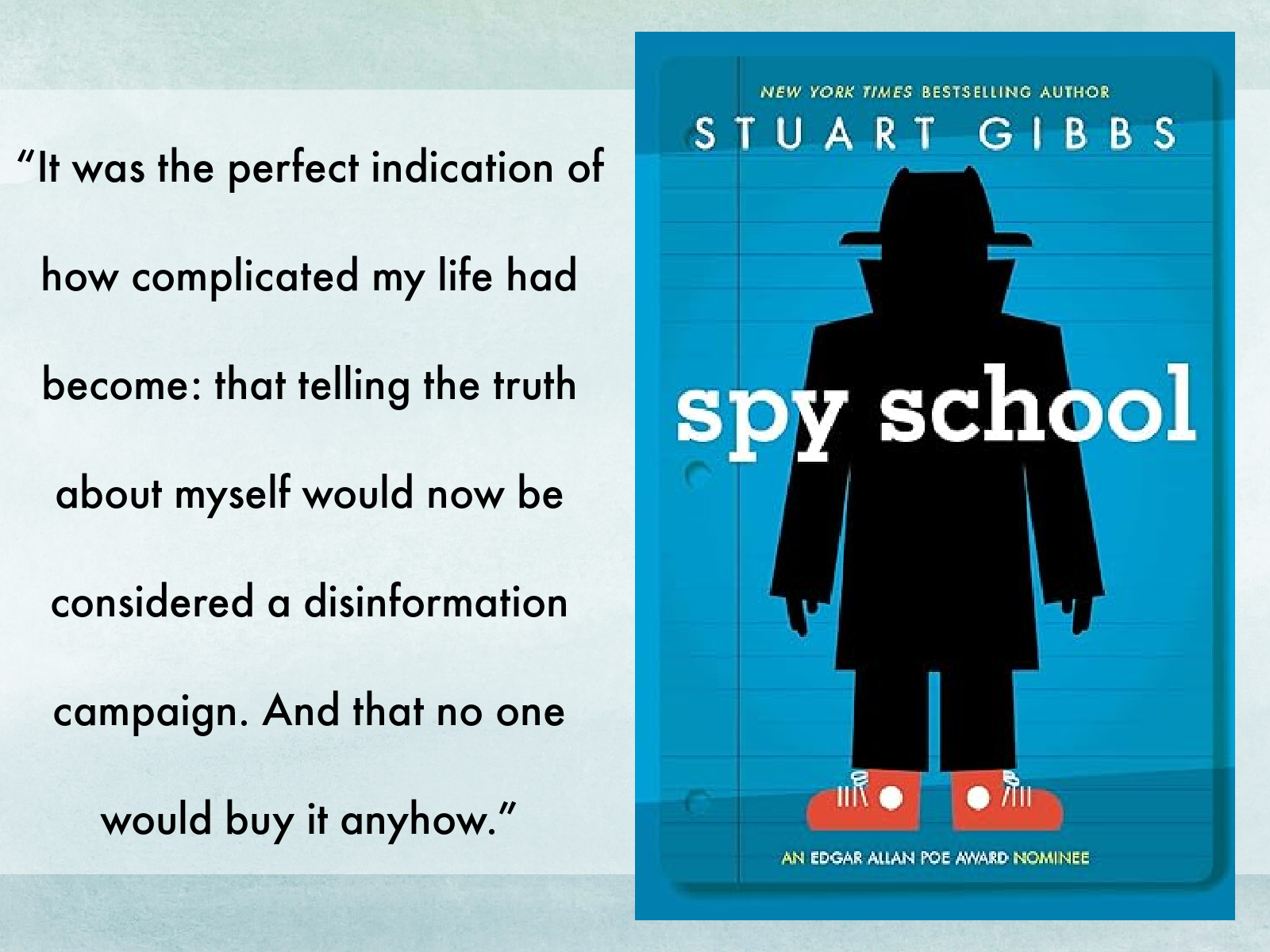
Harry Potter and the Order of the Phoenix, by J. K. Rowling: Charleston and I began reading this one way back in January (we traditionally have started each next HP on Charleston’s birthday and half-birthday) and just finished in May! It’s the longest book in the series and, in my opinion, the weakest: it plays a crucial part in the broad story arc of the series and provides answers to several of the series’ biggest questions, but the drawn-out plot and angst of the novel make it the only book of all seven that is less than five stars for me. This book also brings us Dolores Umbridge, who is probably the creepiest and most loathsome villain of all time—and not a “villain you love to hate,” but one who genuinely terrifies me!
I believe this was my fourth time to read this book, and I was glad I knew what to expect and how to prepare Charleston for some of the darker/scarier scenes. And he did really like this, much to my surprise. However, we will be waiting until his tenth birthday to read Book 6 due to the even darker themes of the next book.
Even though this was not my favorite, I’m still loving the experience of sharing my favorite series with my kiddo and am glad that he is as enthusiastic about HP as me! The twins sat in for a lot of the reading of this one, and although much of the story goes over their heads, they are well on their way to becoming big HP fans as well. We are continuing to love the illustrated versions, though this particular book is HUGE so we alternated between illustrated, traditional print, and Kindle versions of the book depending on how much weight I wanted to hold up while reading. 😉
My Rating: 4 Stars // Charleston’s Rating: 5 Stars // Book Format: Print
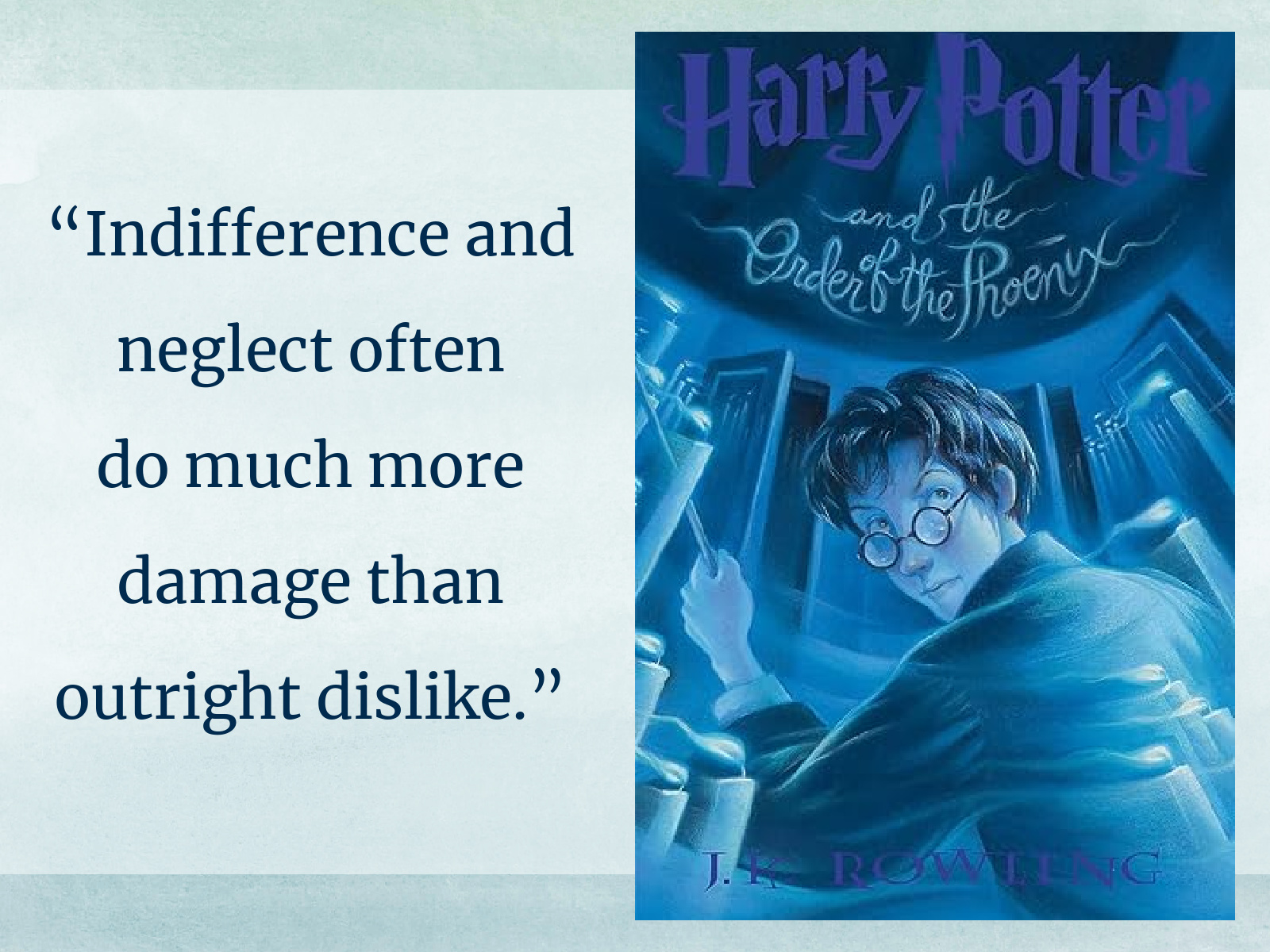
The Ichabog, by J. K. Rowling: The tiny kingdom of Cornucopia was once a prosperous and happy paradise, famous for its delicious cheeses, wine, and pastries. Though legend of the fearsome creature lurking on the kingdom’s perimeter has long concerned Cornucopia’s youngest and most impressionable citizens, the existence of the supposedly formidable Ickabog has never been verified. But when the feckless King Fred falls under the conniving influence of his malicious best friends, the kingdom falls into disarray. The myth of the Ickabog begins to take on a life of its own and all hope seems lost for the good people of Cornucopia. It is up to two children–best friends Daisy and Bert—to rescue Cornucopia from the clutches of its enemies and restore happiness, hope, and kindness to the land.
Charleston received this book as birthday present from the babysitter at our gym, and after reading it he insisted that I would love it too. And he was right! I should never have doubted the magnificent J. K. Rowling, who wrote this years ago as a bedtime story for her children and released it to the world in daily online installments during the start of the Covid lockdown. The book was later released in print, featuring full color illustrations by children from across the country—these are a delight!
This is a true fairy tale, with all of a fairy tale’s (off-the-page) horror and gore, but also the delightful protagonists, fantastical lands, and feats of heroism and romantic gestures. The exaggerated characters are endearing (or, in the instances of our villains, loathsome), and I was captivated by their charm and by the novel’s intricate story with its many unexpected turns.
Though the story itself is rather dark (with plenty of innocent lives lost, a horrific orphanage, unfair imprisonments, etc.), the tone is mostly humorous and lighthearted, with a jaunty narrative style ideal for reading aloud (I wish we’d done this as a family read-aloud!). And while it will be loved by young readers, there are plenty of deeper, more complex themes about corruption, speaking truth to power, the dangers of blind acquiescence, and the importance of integrity, kindness, and hope. This is a sweet, entertaining, and poignant story and I know I’m not alone in my gratitude to J. K. Rowling for releasing it from her attic and gifting it to the world.
My Rating: 4.5 Stars (Rounded to 4 Stars on Goodreads) // Charleston’s Rating: 5 Stars // Book Format: Print
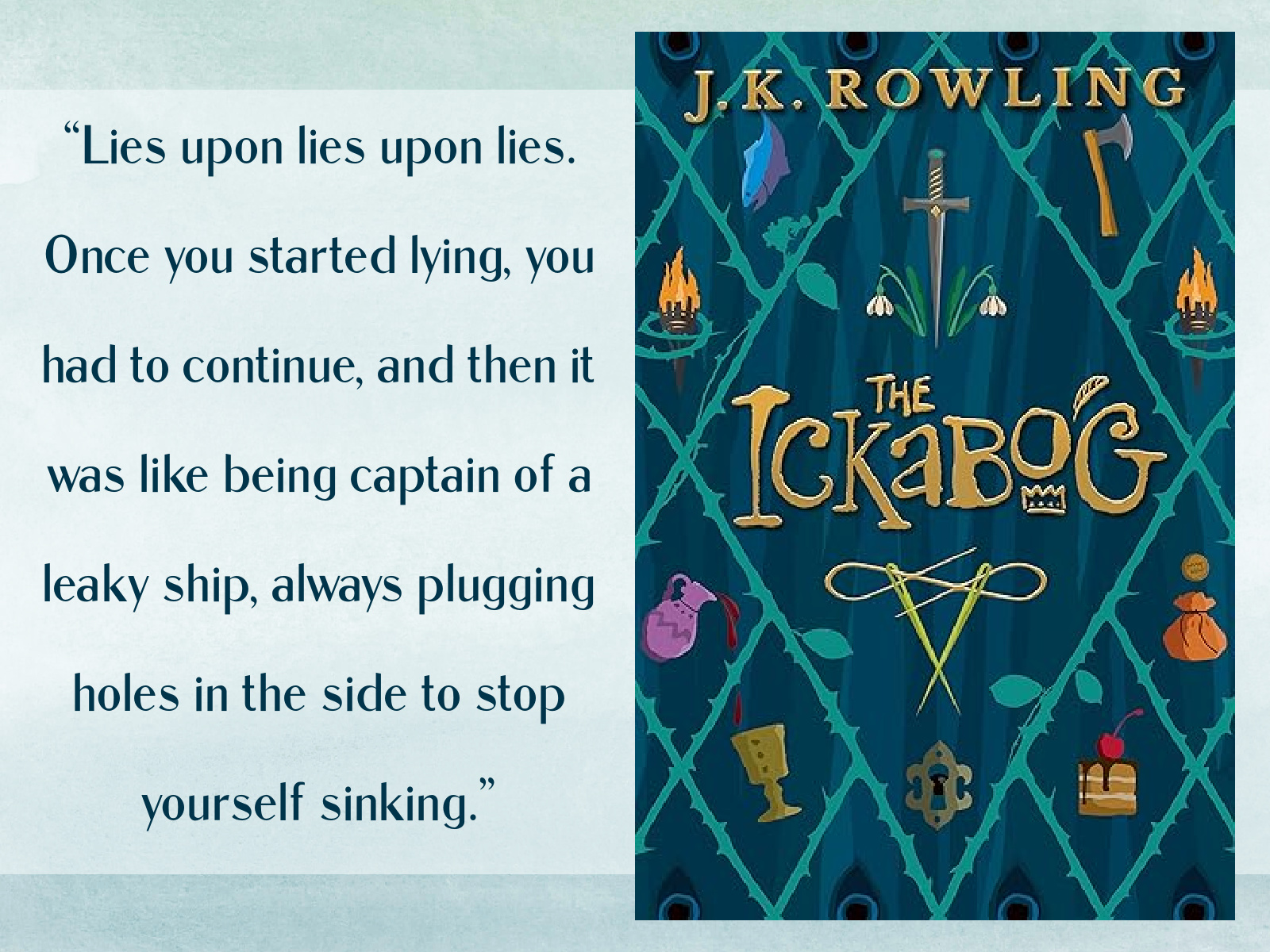
NONFICTION
Range: Why Generalists Triumph in a Specialized World, by David Epstein: To be a parent is to worry about your child’s future, and modern parents have been told that we must begin to worry about and plan for our children’s future careers and successes as early as possible. Extremely young children are placed in competitive sports, enrolled in advanced music lessons, and taken to the best tutors in the hopes that they might specialize early and achieve the greatest success in their respective fields. In this book, investigative reporter David Epstein dispels many of the “early specialization” myths, arguing that in a majority of fields it is generalists, not specialists, who are primed to excel.
After examining the world’s most successful athletes, musicians, inventors, businesspeople, and artists, Epstein concluded that specialization is the exception rather than the rule, and that generalists—who tend to be late bloomers and master a variety of skills and interests rather than focusing on one—have the greatest long-term success. Epstein shares a range of stories from successful individuals to make a compelling case for broad skill development and diversification of interests.
Like books written in a similar vein (such as those by Daniel Pnk, Malcolm Gladwell, and Adam Grant), this one is full of counterintuitive case studies and unconventional ideas. Epstein argues against the cult of the head start and for the advantages of outsiders, lateral thinkers, early quitters, and late bloomers. The book is surprising and the stories are engaging, and though I question some of the evidence (as there is much more emphasis placed on individual anecdotes rather than comprehensive data), I found the information encouraging as I seek to raise well-rounded kids who have yet to find their particular lanes. The book is also an excellent resource for business coaches as well as individuals pursuing improved performance in any number of areas. As its title suggests, it’s a broad book with wide appeal.
My Rating: 4 Stars // Book Format: Audiobook
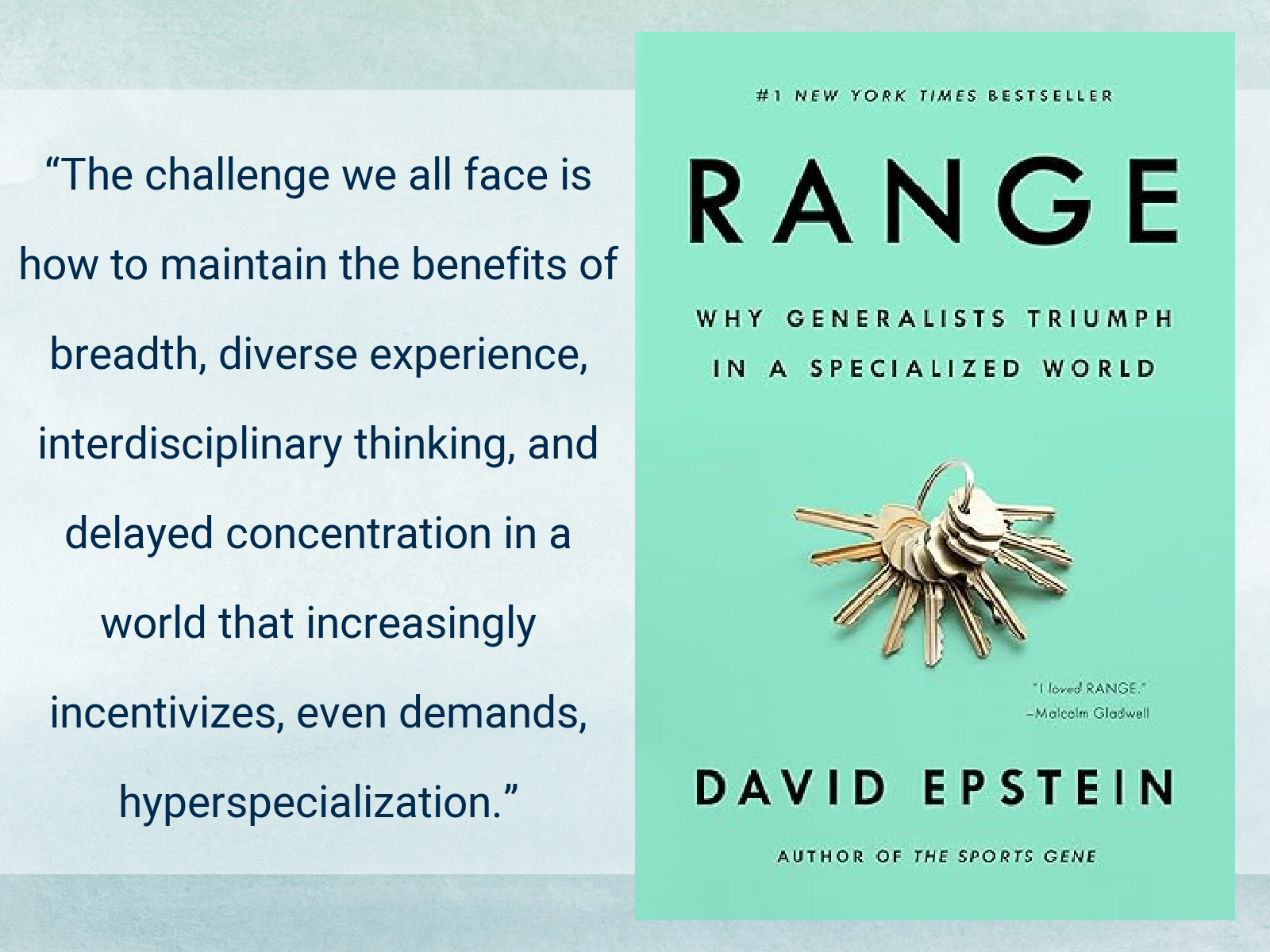
Platonic: How the Science of Attachment Can Help You Make–and Keep–Friends, by Marisa G. Franco: Friendship is hard. I know this personally, and it’s a phenomenon we’ve all been experiencing (or at the very least, witnessing) amid systemic cultural changes in the last decade, resulting in our current loneliness epidemic. Books are not the answer to our friendship woes, but they may help, and in this one psychologist and Psychology Today columnist Marisa G. Franco provides insight and assistance for the challenges plaguing our friendships.
Franco begins with an overview of friendship, including why it is important and how friendship is different today than in the past. Using the language of Attachment Theory, she helps readers diagnose our unique approaches to friendship (Secure, Anxious, or—my type—Avoidant). She then expands upon several key practices for making and keeping friends: Taking Initiative, Expressing Vulnerability, Pursuing Authenticity, Harmonizing with Anger, Offering Generosity, and Giving Affection. Franco uses her own friendship stories and those of others to illustrate these practices in action.
This book came highly recommended from a church friend who found it personally transformative. While I recognize the value of this book and appreciate many of its points, it was not the “game changer” that I anticipated. The book skews young, with most of the examples and advice geared towards unmarried, non-parent individuals in their twenties. A lot of the advice is either common sense or a little ridiculous (there’s quite a bit of woke language and psychobabble), and there is a frustrating selfish (excessively secular) tone that emphasizes feel-good friendship over sacrifice or altruism.
I liked the idea of applying Attachment Theory to friendship, and for me this was the most beneficial part of the book. There are also some helpful tidbits in the chapters on taking initiative and expressing vulnerability that I’ll be implementing in my friendships. If you find yourself trying and striking out in the friendship department, you may find some useful tools here, but don’t go in expecting a great solution to all of your relational woes.
My Rating: 3 Stars // Book Format: Audiobook (Followed along in Kindle)
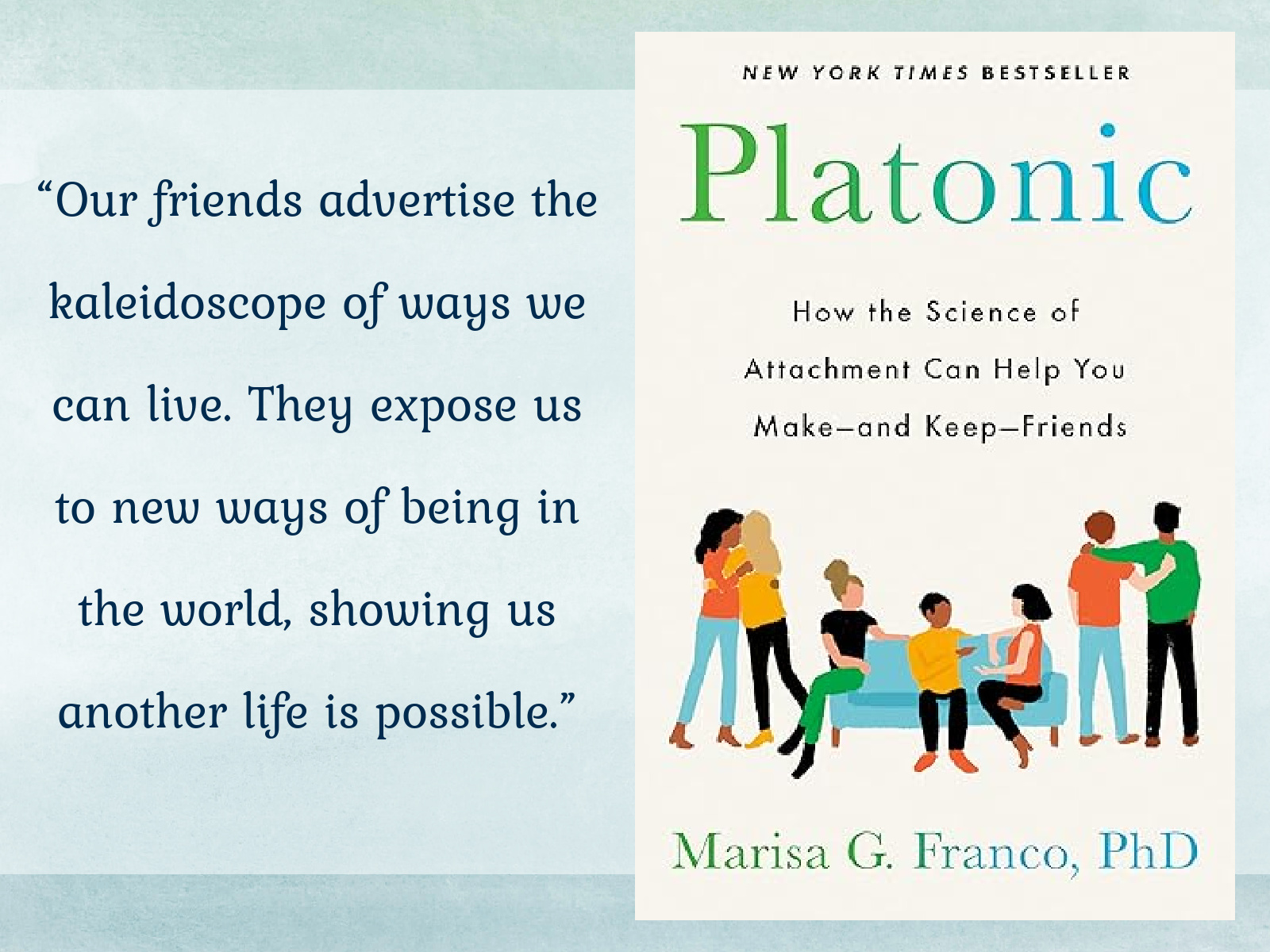
The Anxious Generation: How the Great Rewiring of Childhood Is Causing an Epidemic of Mental Illness, by Jonathan Haidt: The early 2010s witnessed a drastic and frightening trend among adolescents: after years of stability and improvement, the mental health of teens (in America as well as many other countries) began to plummet, with rapidly increasing rates of anxiety, depression, self-harm, and suicide. In The Anxious Generation, social psychologist Jonathan Haidt offers his theory on the culprit: a shift from a “play-based childhood” to the “phone-based childhood” that resulted from the sudden proliferation of screens among children and teens.
After detailing the surge of suffering, Haidt explores childhood development (what kids need vs what we are giving them), particularly the current shift away from risk and play—consequences of a rise in helicopter parenting which, strangely, has coincided with decreased supervision of kids’ screen usage and choices. Haidt examines the foundational harms of a phone-based childhood (social isolation, sleep deprivation, attention fragmentation, and addiction) and looks at how the trend has affected boys and girls differently. In the book’s final section, he puts forth his ideas for collective action we can be taking that will lead to increased societal health for our children.
I didn’t need any convincing that screen usage is harming today’s kids and teens (and adults!), and I’m thankful that Jonathan Haidt—someone whom I greatly respect and whose work has drawn attention to some of the most frightening societal trends of our generation—is bringing greater awareness to this issue. Haidt and I disagree on some key areas, most notably the biggest culprit for mental decline faced by today’s youth: while I see the dangers of excessive screen use, I believe many other factors are at play such as the cultural shift away from family and faith, and the modern trend of over-therapizing our kids (as described in Abigail Shirer’s recent work); we DO need to get a handle on the issue of screen-based childhood, but it won’t solve all of our problems. Another key difference is that Haidt is an atheist, and though he recognizes the spiritual harm caused by the current trend, he does not understand the interplay between spirituality and technology (if you’re interested in this, I’d recommend The Life We’re Looking For and Digital Liturgies as good starting points).
Despite these differences of opinion, this is an important book and one that every parent, teacher, and caregiver should be paying attention to. It is easy to read and research-based, and it blends both science and sociological observation. I appreciate that Haidt does not stop at outlining the problem but presents practical and actionable ideas for how we can bring about change. (His four foundational suggestions are an excellent place to start: 1. No smartphones before high school; 2. No social media before 16; 3. Phone-free schools; and 4. More unsupervised play and childhood independence.) This book gives clarity to a frightening trend and offers hope that we can effect change if enough of us are willing.
My Rating: 4 Stars // Book Format: Audiobook
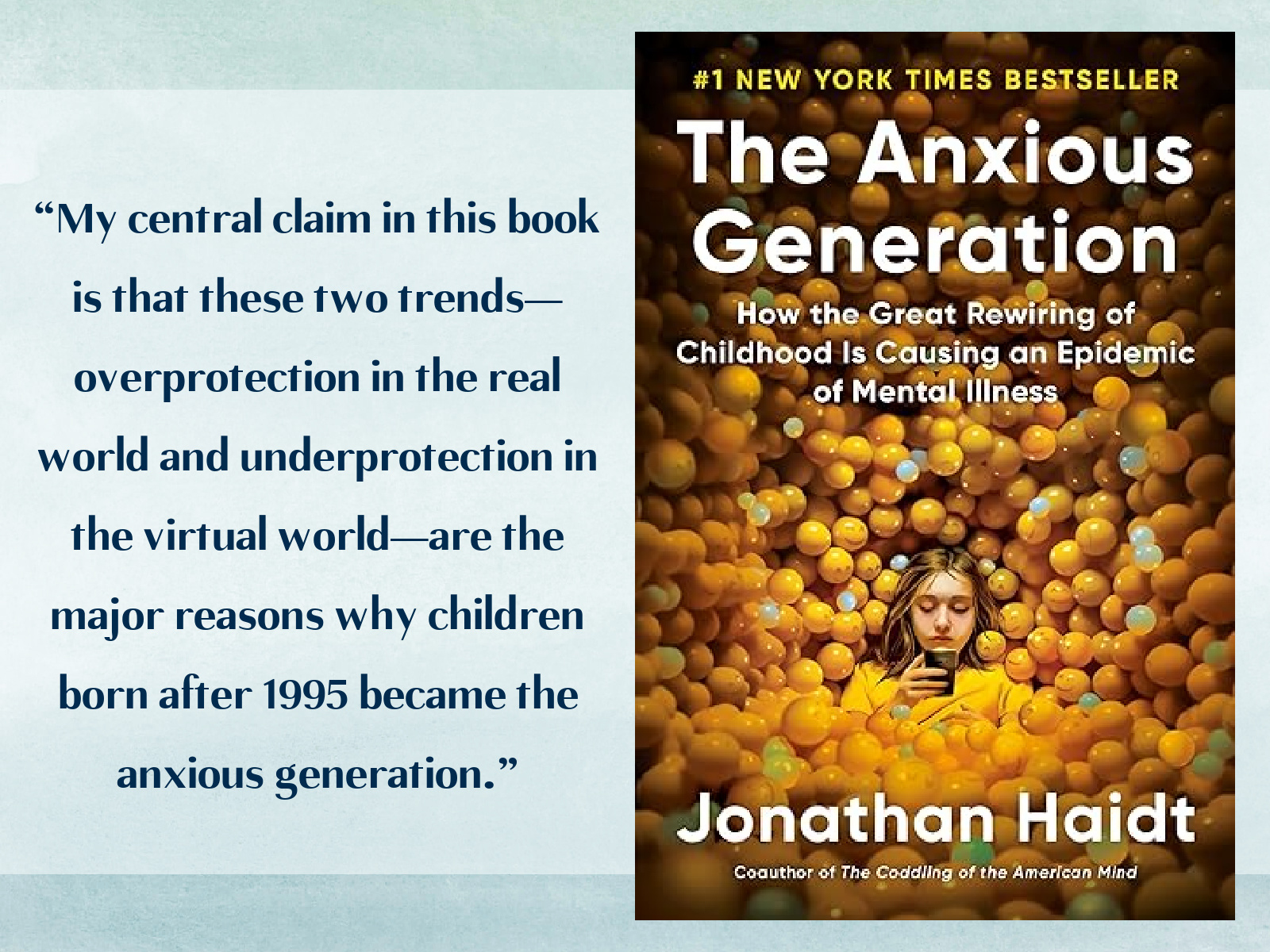
Congratulations, The Best is Over!, by R. Eric Thomas: R. Eric Thomas should have been living his best life. He had a successful career as a cultural commentator, had come to terms with his unique identity (Christian, gay, and black), and was happily settled into marriage with David, the love of his life. Unfortunately, midlife threw him some curveballs. A move back to his hometown of Baltimore prompted complex feelings as he was forced to reconcile who he was before with who he’d become. As his husband found purpose in his pastoral calling, Thomas failed to find meaning in his own work. Then the pandemic struck, life for black individuals became extremely complicated, and it soon became apparent that Thomas’s best days were, indeed, behind him.
Despite the somewhat bleak premise, Thomas IS a comedy writer and the humorous essays in this collection are very funny. Thomas’s timing is excellent and his storytelling is witty and sharp without veering towards crassness or mean-spiritedness. I especial enjoyed Thomas’s essay on his twenty-year high school reunion, in which he brings out the humor of a painfully awkward (yet uncomfortably relatable) setting.
As the summary suggests, this book isn’t all laughs, and the melancholic essays were a harder sell for me. I could relate to some of Thomas’s complicated thoughts on midlife; other portions veered into self pity and angst that were a little much for me. I also did not care at all for the pandemic portions and political slant of the book which—less than a year after the book’s publishing—already felt dated.
Congratulations. . . is a unique blend of funny, bittersweet, tender, cynical, and hopeful. I can see how this collection has been such a hit for so many readers; unfortunately, I’m apparently not the best audience for this talented writer’s work.
My Rating: 3.5 Stars (Rounded to 3 Stars on Goodreads) // Book Format: Audiobook (Thomas’s narration is excellent!)
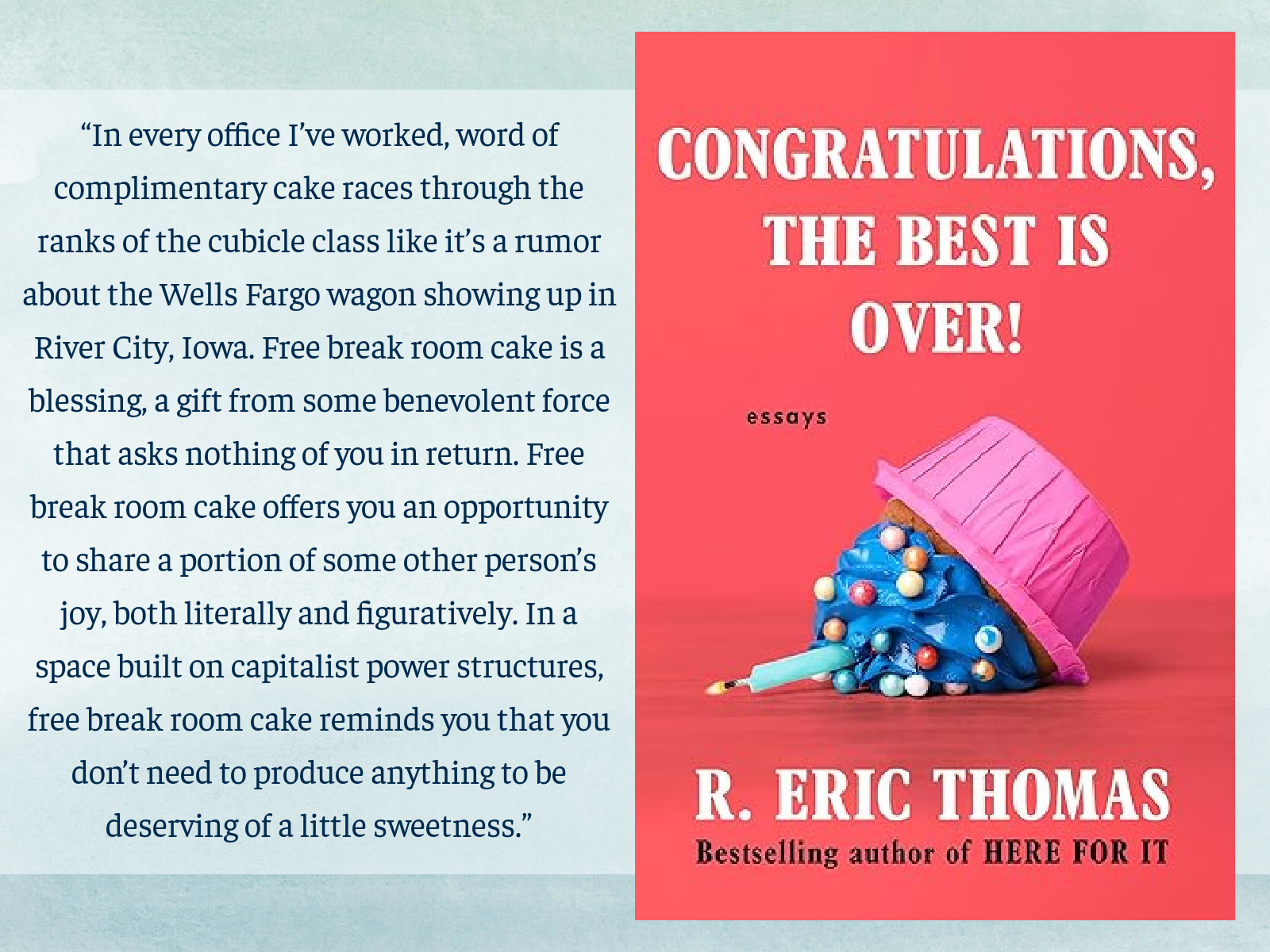
FICTION
No. 23 Burlington Square, by Jenni Keer: It’s August of 1927 and middle-aged spinster Agnes Humphries has a big decision to make. The second-floor rooms of her London townhouse lie empty due to the unfortunate demise of their former tenant, and three individuals are contending to be the newest resident of Number 23 Burlington Square. Agnes is torn between giving the rooms to her wayward young niece, Clara; Stephen, the respectable middle-aged banker; and a timid war widow named Mercy. Her choice will lead to drastically different outcomes for these three potential tenants and for all who currently reside at Number 23.
In three sections portraying alternate timelines, we witness each of the potential lodgers enter Number 23. Secrets are exposed, lives are transformed by Agnes’s kindness and hospitality, and—for better and for worse—cascades of events are set into motion, sending ripples up and down the floors of Number 23 and into the future for the little found family of this London home.
I don’t know that I’ve read any other novels with this type of “sliding doors” premise, and this book solidified my love for the trope (not surprising given my love for time travel books, to which sliding doors is a close cousin). I enjoyed seeing the story play out in different directions, and while this repeat of timelines could have become tedious, Keer is creative with her retelling and overlap, keeping the story fresh with each new timeline.
In addition to loving the premise, I enjoyed the 1920s London setting and themes of compassion, found family, and second chances. Agnes is a delightful character and is the heart of both Number 23 and the novel itself; I especially loved the interludes that explore her backstory through sentimental items within the home. The plot, too, is strong with elements of mystery and romance and many big twists that kept me surprised at every turn.
Despite so much to love in this book, there was quite a bit that was disappointing. I found nearly all of the characters (besides Agnes) to be unlikeable, especially Agnes’s spoiled niece whose lesbian journey was anachronistic and not at all to my taste. There is a lot of discussion (and confusion) surrounding religion and spirituality, giving the impression that the author is working out her own ideas about God; this would likely go unnoticed by many readers, but I grew increasingly frustrated with the misrepresentation of Christianity. Even the morals and messages I agree with were too on the nose to feel sincere. One final frustration was with the pacing, with some events drawn out and others glossed over, making the book feel at once too long and not long enough.
I would recommend this to lovers of historical fiction who are up for a little magical realism and don’t mind some unreliable narration. My enjoyment of the writing style and appreciation for the book’s creativity have me open to reading more from this author, despite my issues with this particular book.
My Rating: 3.5 Stars (Rounded to 4 Stars on Goodreads) // Book Format: Kindle
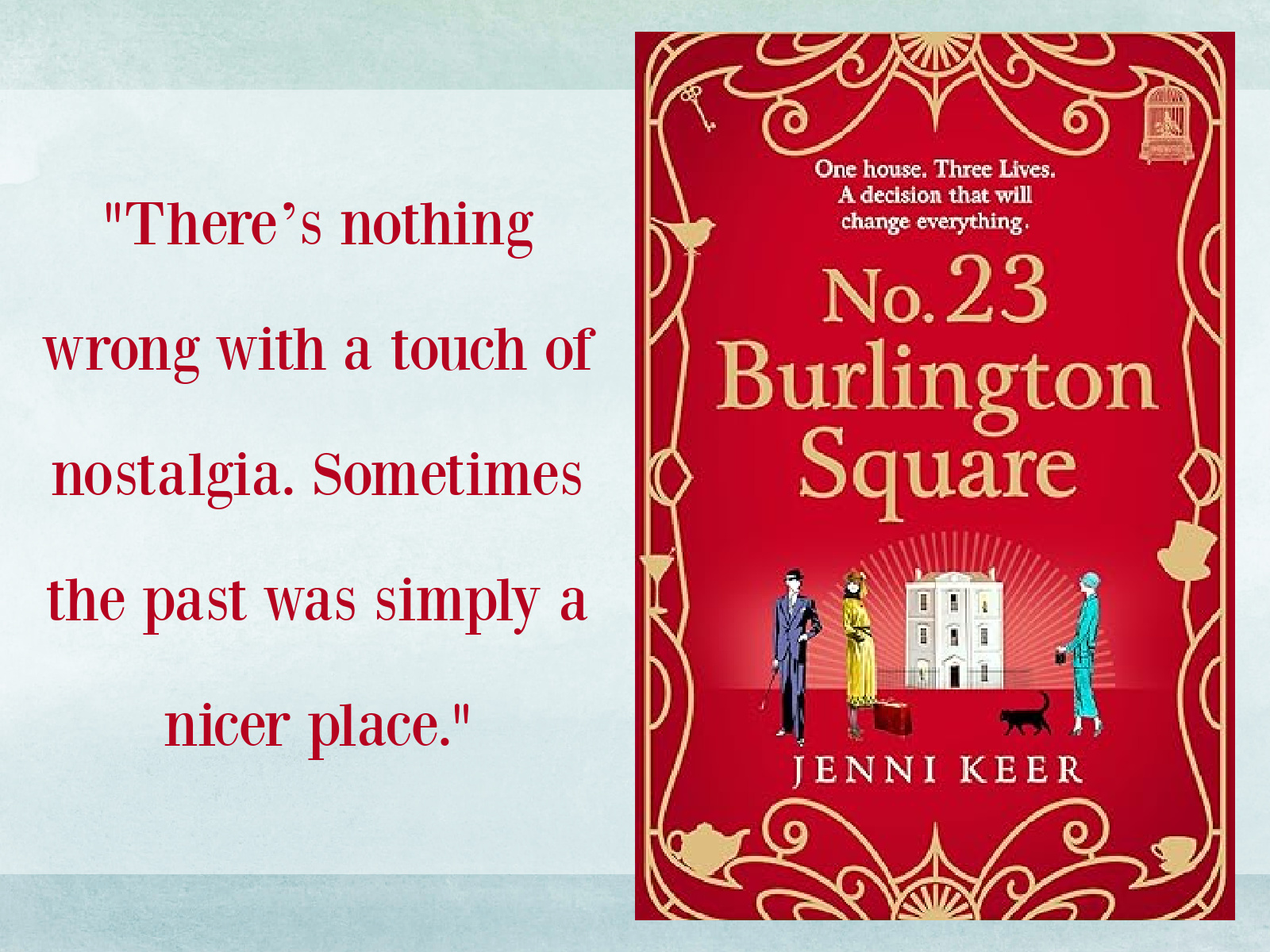
The Baxters: A Prequel, by Karen Kingsbury: I probably need to turn in my “Book-Loving Christian Millennial” card with my confession that until now I had never read any of the dozens of books in Karen Kingsbury’s Baxter Family series. But after Luke and I watched the first episode of the new Baxter Family show on Amazon Prime, I felt I needed to know more before continuing with the tv series, and this prequel seemed the best place to start.
Set a few years prior to the events of the show (which I’ve since learned is based on the Redemption series), the book takes place on the day of Kari Baxter’s wedding to Tim. Kari’s four sisters, brother, and parents all have misgivings about the wedding and wonder if she should be moving forward with this new relationship so soon after an abrupt breakup with her high school love. Meanwhile, Kari’s younger sister Ashley is adjusting to single motherhood after returning home from Paris a year ago carrying the son of a married man. Ashley’s siblings disapprove of her parenting and lifestyle choices, but her long-ago love, Landon Blake, still cares for Ashley and sees her sister’s wedding as an opportunity to win back the woman who has his heart.
The novel’s POV shifts between many of the Baxter family members and others close to the family, with flashbacks to Ashley and Kari’s childhood loves stories and the breakups that led to their current—possibly poor—decisions and lifestyle choices. And at the forefront is a fraught wedding, a threatening tornado, and a family that was built on love and faith but is threatening to break apart at the seems.
I REALLY wanted to love this book. The Baxters are a wonderful, Christ-centered family and I appreciated the themes of redemption, second chances, forgiveness, and family love that are woven into each storyline and conversation. The theme of parenting young adults led me to think more deeply about entering that stage one day myself, which has brought some much-needed perspective and focus to my prayers for my own kids. Some may find the novel’s overt Christian themes preachy or forced, but I really enjoy reading books about committed believers whose faith influences every corner of their story. Throughout the book the family prays together, discusses God and His will, and encourages one another with Biblical truth; these are things we try to do in my own family, so these parts of the story felt natural rather than cheesy or forced.
However, the story itself IS pretty cheesy with too much over-the-top drama and angst. As I haven’t read the other books involving the Baxter family, I’m unsure how much of the content in this novel is repeated elsewhere, but as a newcomer this felt like an information dump with with an overwhelming amount of backstory and foreshadowing. I liked these characters and wanted to get to know them better, but my attention was pulled in too many directions to feel invested in any one part of the story.
Having read this and now watched a little more of the TV series, I do plan to begin the “official” first books of the Baxter series and have higher hopes for those, although Kingsbury’s writing style is not a favorite so I doubt I will become a Baxter devotee any time soon.
I’m curious to hear from those who do have experience with the other books in this series: what did you think of this prequel? Did it tie in well with the other books? If I didn’t love this, will I like the other books more?
My Rating: 3 Stars // Book Format: Kindle
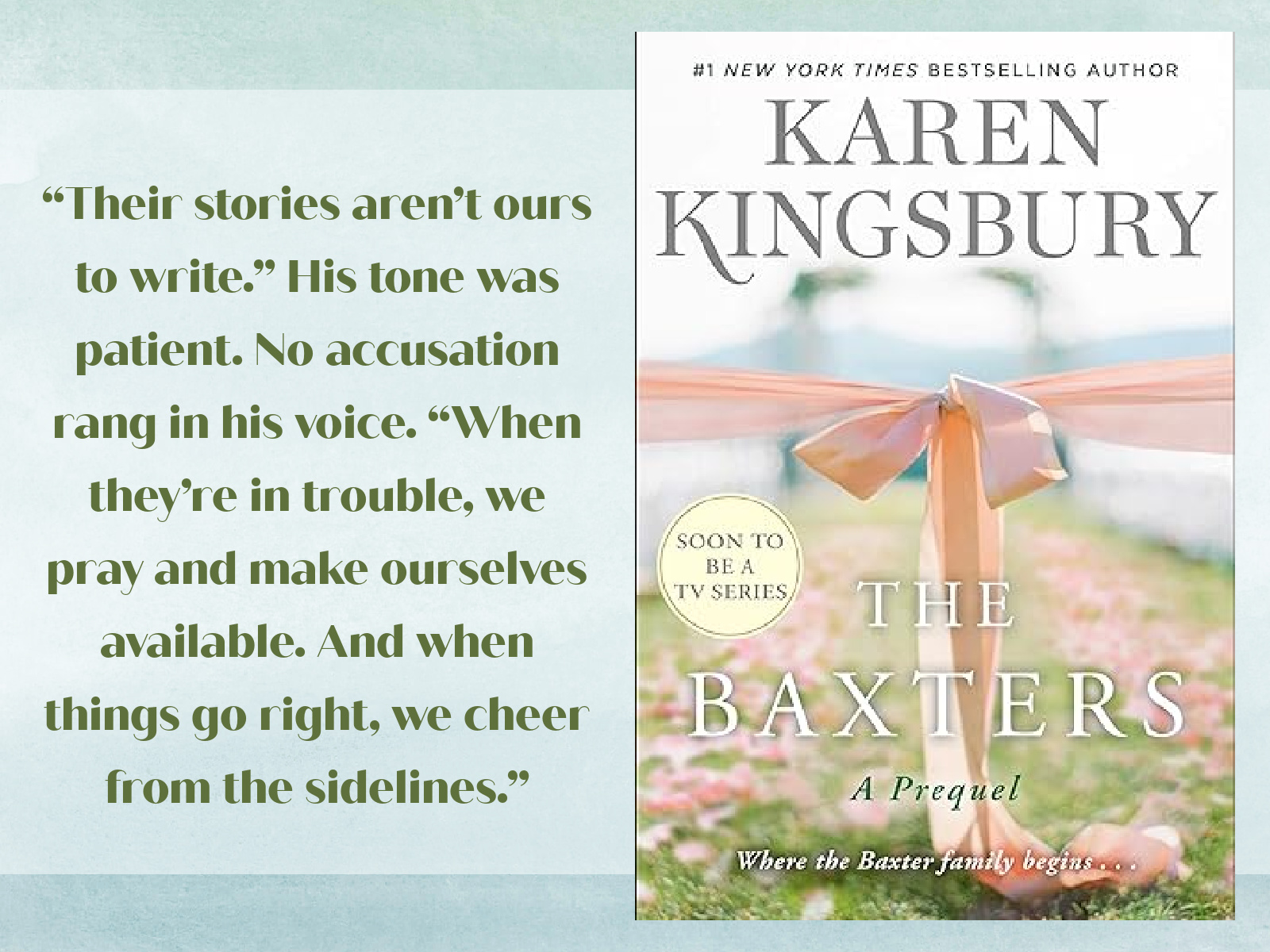
Confessions, by Kanae Minato: On the final day of the school year, middle school teacher Yuko Moriguchi has tendered her resignation and has one final lecture for her students. She has the classroom’s full attention as she pours out her story, much of which they already knew: how Moriguchi was a single mother to a 4-year-old girl, Manami. How Manami died tragically on the school grounds earlier in the year. How the tragedy was part of why Moriguchi could no longer be their teacher. But there is more that the students did not know: that Manami’s death was not an accident, but a murder. And that two of their classmates are the culprits. Moriguchi’s revelation and her unconventional plot to avenge Manami’s death sets off a series of cataclysmic events that will leave a trail of broken spirits and possibly lives in its wake.
The story is told in six parts: the first is Moriguchi’s lecture, and each subsequent part shares the perspective of a different character including each of the guilty students; the mother of one of the students; and an innocent classmate. These perspectives are each told through unique formats including journal entries, a letter, and a blog confessional, and each new confession adds to the complexity of the broader narrative, resulting in a dark and harrowing story that will keep you turning pages into the night, and keep your mind reeling for much longer.
This twisty story is absolutely wild! It is one of the darkest thrillers I’ve read, with its brazen foray into the minds of several malicious and vindictive individuals and its unflinching exploration of revenge, vigilantism, mental illness, and the role that parents and teachers play in the formation of young identities. How culpable are the caregivers when adolescents commit atrocities? How can these behaviors be avoided and, once committed, what should be done? This is a story about many things, but mostly it could be seen as a story of motherhood—of mother love, mother expectations and obsession, and mother regret. . . and the consequences of each.
This was originally published in Japan and I enjoyed the window into Japanese school life, with its differing school calendar, variances in student life, and alternative approaches to the teacher/student dynamic. Although the Japanese names were somewhat of a reading stumbling block (mostly because there are many characters to keep track of), I found the rest of the story very readable and chillingly relatable to current events. I never would have picked this one up on my own, and though it gave me nightmares for days, it was an excellent read and I’m thankful to Meredith of Currently Reading for pressing it into her audience’s hands.
My Rating: 4.5 Stars (Rounded to 4 Stars on Goodreads) // Book Format: Print
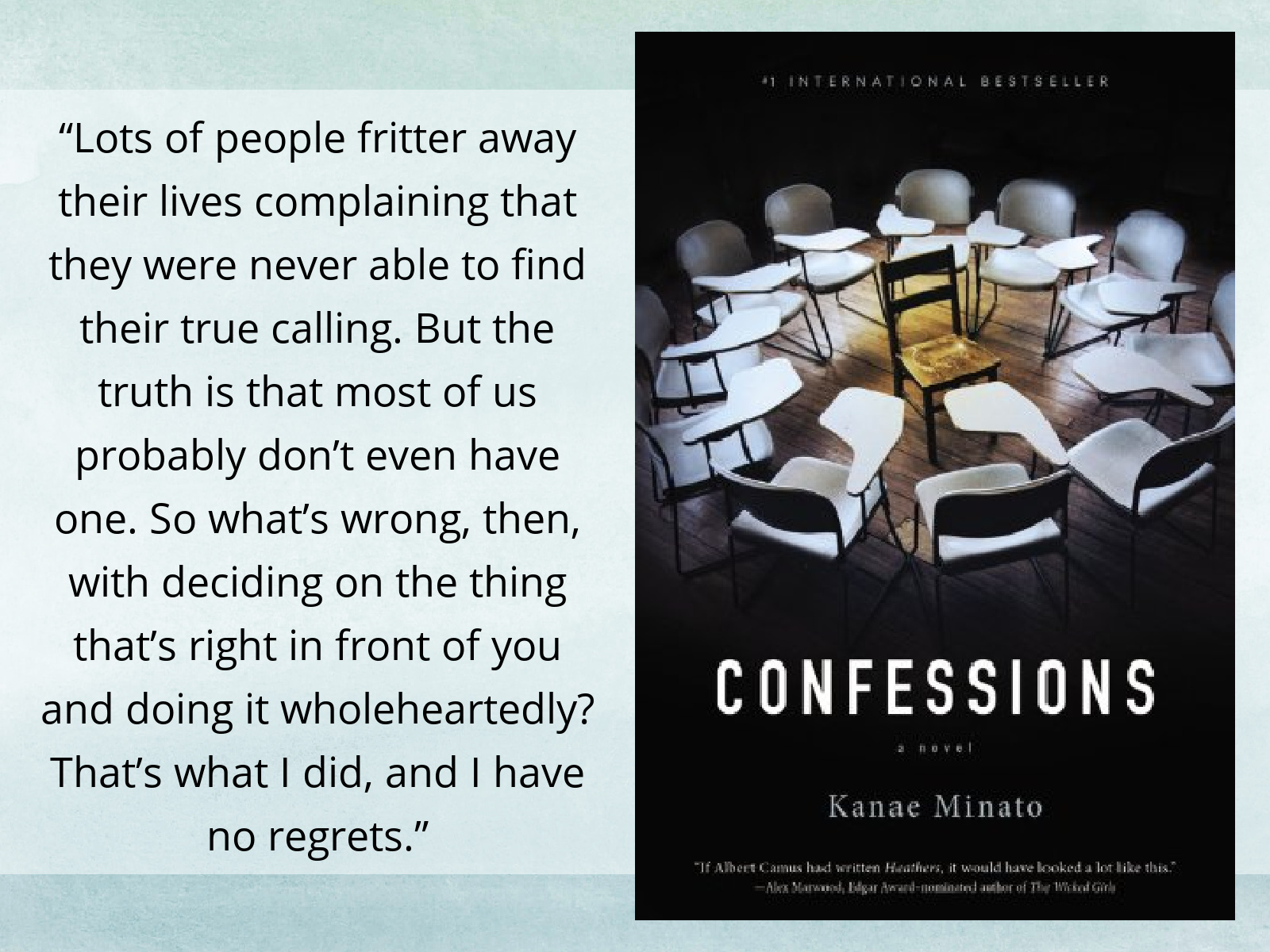
Late Bloomers, by Deepa Varadarajan: After thirty-six years of an unhappy arranged marriage, Lata Raman decided it was time for a fresh start and is now enjoying her new life of independence, working at a music library and attracting the attentions of a sexagenarian professor. Though still reeling from the divorce, her ex-husband Suresh has decided he’s ready for a second chance at love but is having little luck in the foreign territory of online dating. . . until his most attractive (much younger) online pursuit shows up on his doorstep with a big surprise.
Meanwhile, the Ramans’ adult children are in the center of disastrous love lives of their own. Thirty-five-year-old Priya has a successful career as a professor, but longs for marriage; unfortunately, the man she’s involved with refuses to leave his wife. And thirty-year-old Nikesh appears to be a happily married father of a one-year-old son; what his parents don’t know is that he and the child’s much-older mother (who happens to be his boss) have yet to tie the knot, and their relationship is anything but happy.
Over the course of a few summer weeks, these family secrets begin to emerge, leading to one disastrous weekend of confrontation and colliding egos. This fractured family must navigate their new assortment of conflicting relational dynamics if there is any hope for new beginnings and second chances.
At its surface there is much to commend in this book. The premise is interesting, the prose is strong, and it’s an engaging read with plenty of interesting storylines and perfect pacing. I enjoyed the alternating perspectives that give up-front views into the lives of all four protagonists, and I appreciated the window into Indian-American culture as well as the Austin, Texas, setting. (I was confused, though by the decision to set this in 2009 and wish the time period had been made more explicit at the beginning, as it led to some initial confusion in my reading).
Unfortunately, there was quite a bit to dislike in this novel as well. I found all of our protagonists (perhaps with the exception of the son, Nikesh) to be selfish and extremely unlikeable, making it hard for me to root for happy endings in the wake of their poor decisions. I struggled with the emphasis of happiness over commitment, and the willingness to set aside values for the sake of appearances and comfort. Unnecessary divorce and infidelity are at the center of every primary storyline, and these are mostly presented as justifiable and even beneficial. I was disturbed that this story whitewashed the fallout that inevitably results from relationships built on selfishness and deception.
If you are a fan of complicated family stories, you may enjoy this, but enter in knowing that there are no tidy conclusions and zero moral values presented here.
My Rating: 3.5 Stars (Rounded to 3 Stars on Goodreads) // Book Format: Kindle
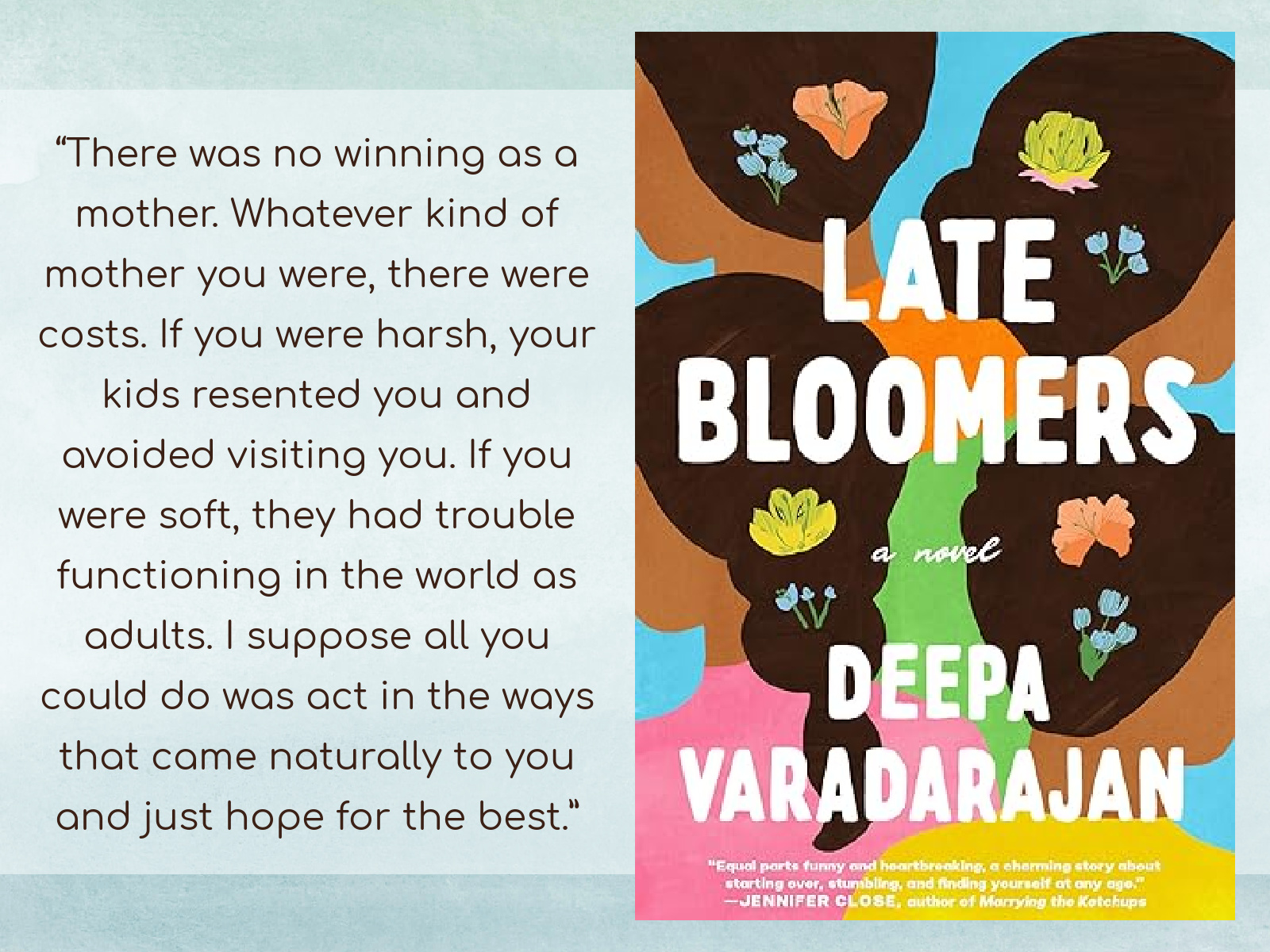
What have you been reading lately? Summer Reading Guides are out and lots of those titles are grabbing my attention: any opinions on which should I reach for next?